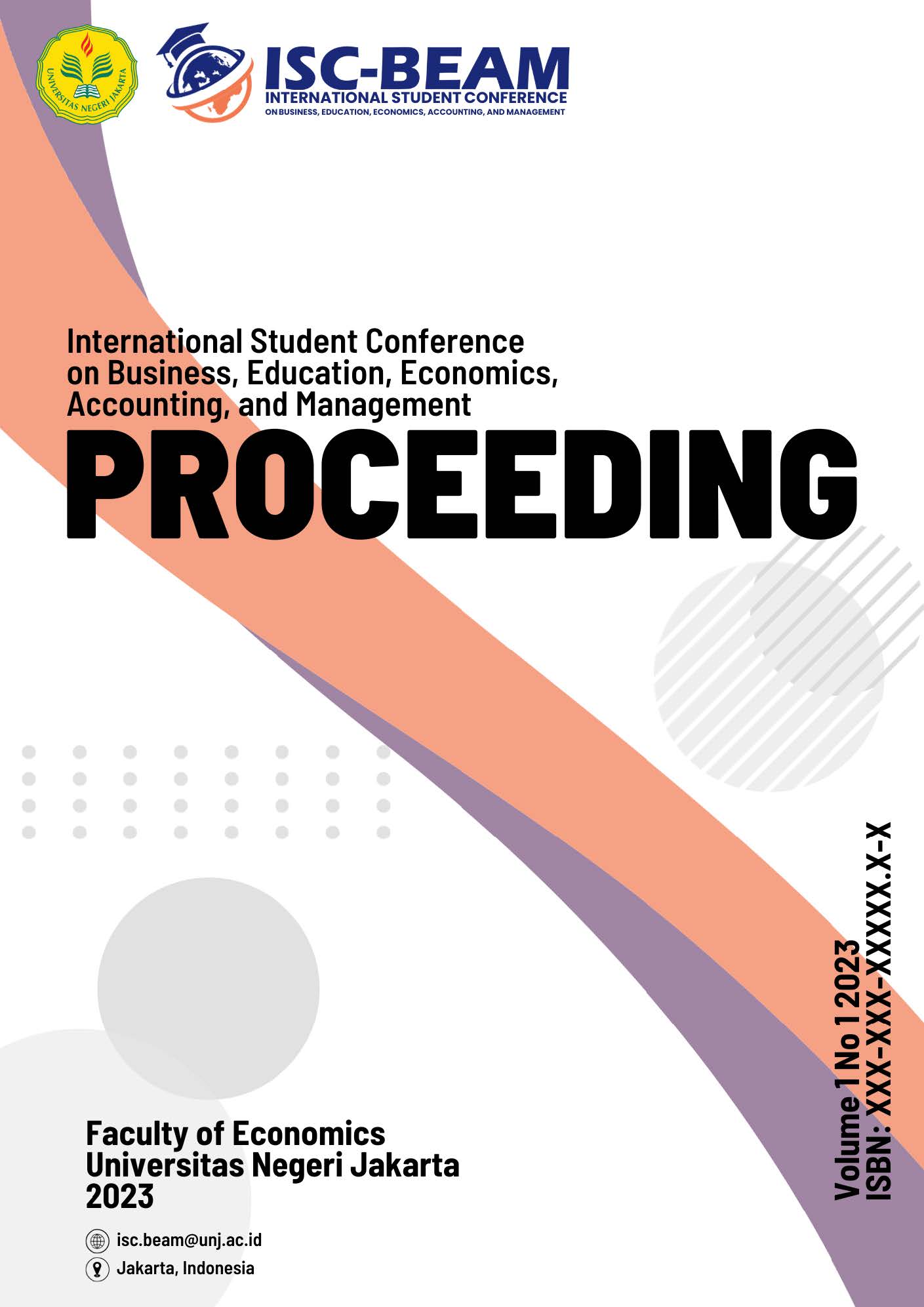Fostering Creative and Critical Thinking Skills through Collaborative Learning: A Theoretical Approach
DOI:
https://doi.org/10.21009/ISC-BEAM.011.43Keywords:
CollaborativeLearning, Students' creative thinking skillsAbstract
This study aims to improve students' creative and critical thinking skills by using a collaborative learning model. The problem studied is the low motivation of students to learn, students who are less creative and not critical, so a collaborative learning model is needed. The method used is qualitative with literature and literature studies, theoretically and historically analyzing the development of learning models. The results of this study consistently show that collaborative learning has a positive impact on the development of students' creative and critical thinking skills. Collaborative learning allows students to interact, share ideas and work together to achieve common learning goals. In this way, they can gain deeper understanding, solve problems creatively and develop their critical thinking skills. In other words, collaborative learning is an effective approach to improving students' thinking ability in various aspects. This study also explains the theoretical measurement factors for future researchers and describes, explains and measures the development of learning models based on theoretical studies.
References
Alp, G., & Bulunuz, N. (2023). Effect of Web-Based Collaborative Learning Method with Scratch on Critical Thinking Skills of 5th Grade Students. Participatory Educational Research, 10(2). https://doi.org/10.17275/per.23.30.10.2
Ariffin, A. (2021). Effects of Student Collaboration on ESL Learners’ Vocabulary Development. Asian Journal of University Education, 17(1). https://doi.org/10.24191/ajue.v17i1.12627
Aspers, P., & Corte, U. (2019). What is Qualitative in Qualitative Research. Qualitative Sociology, 42(2), 139–160. https://doi.org/10.1007/s11133-019-9413-7
Cissé, A., & Rasmussen, A. (2022). Qualitative Methods. In Comprehensive Clinical Psychology(pp. 91–103). Elsevier. https://doi.org/10.1016/B978-0-12-818697-8.00216-8
Faatehah, P., & Lestari, N. A. (2021). Profile of Students’ Creative Thinking Skills and Implementation of Free Inquiry in Senior High School. Jurnal Pendidikan MIPA, 22(2), 292–304. https://doi.org/10.23960/jpmipa/v22i2.pp292-304
Hairida, H., Marmawi, M., & Kartono, K. (2021). An Analysis of Students’ Collaboration Skills in Science Learning Through Inquiry and Project-Based Learning. Tadris: Jurnal Keguruan Dan Ilmu Tarbiyah, 6(2), 219–228. https://doi.org/10.24042/tadris.v6i2.9320
Jumadi, J., Perdana, R., Hariadi, M. H., Warsono, W., &Wahyudi, A. (2021). The impact of collaborative model assisted by Google Classroom to improve students’ creative thinking skills. International Journal of Evaluation and Research in Education, 10(2). https://doi.org/10.11591/ijere.v10i2.20987
Laisema, S.,& Wannapiroon, P. (2014). Design of Collaborative Learning with Creative Problem-solving Process Learning Activities in a Ubiquitous Learning Environment to Develop Creative Thinking Skills. Procedia -Social and Behavioral Sciences, 116, 3921–3926. https://doi.org/10.1016/j.sbspro.2014.01.867
Loes, C. N. (2022). The Effect of Collaborative Learning on Academic Motivation. Teaching and Learning Inquiry, 10. https://doi.org/10.20343/teachlearninqu.10.4
Lutfiah, I., Suharti, P., & Asy’ari, A. (2021). Improving Students’ Creative Thinking Skills through the IBSC (Investigation Based Scientific Collaborative) Learning Model Based on E-Learning. SEJ (Science Education Journal), 5(2), 85–97. https://doi.org/10.21070/sej.v5i2.1572
Malik, A., Prihatini, S., & Agustina, R. D. (2023). Study on Collaborative Creativity Learning Models and Gender on Students’ Creative Thinking Skills. Jurnal Penelitian & Pengembangan Pendidikan Fisika, 9(1). https://doi.org/10.21009/1.09109Maxwell, J. A. (2021). Why qualitative methods are necessary for generalization. Qualitative Psychology, 8(1), 111–118. https://doi.org/10.1037/qup0000173
Permana, T. I., Hindun, I., Rofi’ah, N. L., & Azizah, A. S. N. (2019). Critical thinking skills: The academic ability, mastering concepts, and analytical skill of undergraduate students. JPBI (Jurnal Pendidikan Biologi Indonesia), 5(1), 1–8. https://doi.org/10.22219/jpbi.v5i1.7626
Qureshi, M. A., Khaskheli, A., Qureshi, J. A., Raza, S. A., & Yousufi, S. Q. (2023). Factors affecting students’ learning performance through collaborative learning and engagement. Interactive Learning Environments, 31(4). https://doi.org/10.1080/10494820.2021.1884886
Rahman, A., Masitoh, S., & Mariono, A. (2022). Collaborative Learning to Improve Creative and Critical Thinking Skills: From Research Design to Data Analysis. International Journal of Educational Review, 4(1), 79–96. https://doi.org/10.33369/ijer.v4i1.22016
Rasyid, M. Al, & Khoirunnisa, F. (2021). The Effect Of Project-Based Learning On Collaboration Skills Of High School Students. JURNAL PENDIDIKAN SAINS (JPS), 9(1). https://doi.org/10.26714/jps.9.1.2021.113-119
Sirait, J. V., & Amnie, E. (2023). Analysis of Students’ Collaboration Skills through Project-Based Learning Model. Gagasan Pendidikan Indonesia, 4(1). https://doi.org/10.30870/gpi.v4i1.19836
Timbrell, L., Scott, C., Habte, B., Tefera, Y., Monod, H., Qazzih, M., Marais, B., Black, W., Maroma, C., Ndiema, E., Henderson, S., Elmes, K., Plomp, K., & Grove, M. (2022). Testing inter-observer error under a collaborative research framework for studying lithic shape variability. Archaeological and Anthropological Sciences, 14(10). https://doi.org/10.1007/s12520-022-01676-2
Warsah, I., Morganna, R., Uyun, M., Hamengkubuwono, H., & Afandi, M. (2021). The Impact of Collaborative Learning on Learners’ Critical Thinking Skills. International Journal of Instruction, 14(2). https://doi.org/10.29333/iji.2021.14225a






